Graham Reid | | 4 min read
No Laughing Matter
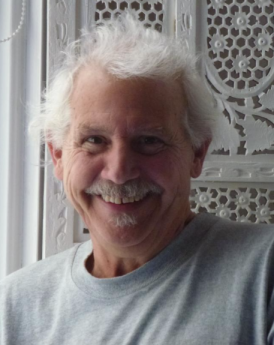
While we can say with certainty there has never been such as things as a “typical Jonathan Besser album” we can still express a little surprise at the direction he has taken for his new Time Travels, recorded in New Jersey with his Besser 3 band.
To recap though.
Pianist/composer Jonathan Besser arrived in New Zealand in the mid Seventies, and shortly thereafter the punk ethos took hold and post-punk allowed for all kinds of expression. The barriers were down and although pure punk had enjoyed a short life, those who followed were unconstrained by genre and sometimes even lack of talent.
The doors were flung wide.
And so emerged artists like Chris Knox (whose music is more diverse than many might think); Jed Town exploring electronics, gloom-dance and video projections; Bill Direen, Kiwi Animal; Drone . . .
Parallel to all this there was an interesting cross-fertilisation starting to happen between musicians who might have nominally been in the jazz, rock or classical areas.
Much of this came through the agency of people like Philip Dadson (who founded From Scratch), territory-shifting musicians like Don McGlashan (who was briefly in the avant-rock outfit The Plague, a member of From Scratch and worked with others on left-field solo projects) and Ivan Zagni.
Zagni arrived in New Zealand at the dawn of the Eighties as a British composer, choral master and session guitarist.
Around him and others were formed free-form collectives such as Avant Garage, Big Sideways and others in the Artworks Scheme. The label Unsung recorded much of the work by these players who came from diverse musical backgrounds. And so we had albums and EPs of McGlashan and Zagni, Zagni with drummer Steve Garden (these days recognised as the longtime prime-mover and head of the Rattle label), 3 Voices, Low Profile and more.
The spontaneous cross-fertilisation of ideas lead to music which could be as challenging as it was shapeless, and unfortunately few of those albums remain in print or available on streaming services.
But it happened, classical, jazz, rock and whatever musicians all trying to find common ground, or uncommon ground. And – because radio would never play the stuff anyway – they were free to what they liked.
Out of Wellington the Braille label recorded a similar revolving door roster of artists, mostly along the jazz spectrum.
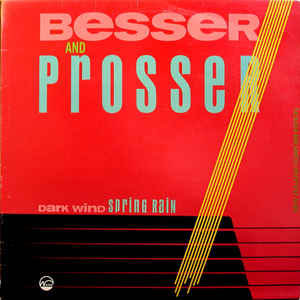 This was the world which opened up for
Jonathan Besser and for many, because he was a musician from New
York, he was an interesting outsider brimming with ideas like Zagni,
and now had a welcoming context in which to work.
This was the world which opened up for
Jonathan Besser and for many, because he was a musician from New
York, he was an interesting outsider brimming with ideas like Zagni,
and now had a welcoming context in which to work.
His first two albums were as Besser and Prosser with violinist Chris Prosser and those records still seem innovative, if only for the musical territory they covered: there were impressionistic pieces (Wellington Harbour), Eastern European folk (Klezmorim), references to Thelonious Monk and classical music . . .
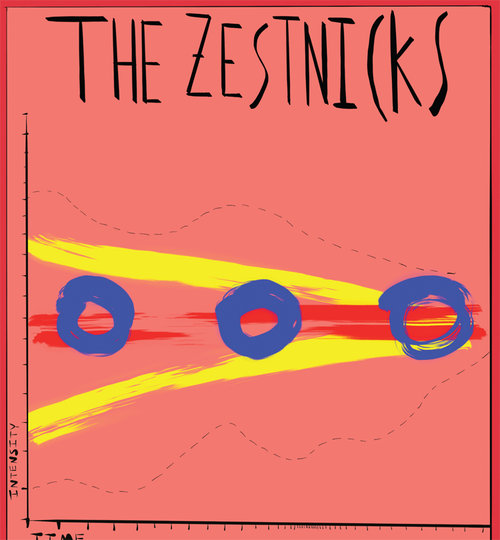 But Besser also hooked up with Ross
Harris who was experimenting with electronic sounds for the Free
Radicals project.
But Besser also hooked up with Ross
Harris who was experimenting with electronic sounds for the Free
Radicals project.
Again boundaries were being pushed.
And Besser continued to follow his own path into having his classical works performed by our leading orchestras, forming his own groups (the Besser Ensemble, Gimel more recently Bravura and Zestnicks), working in numerous collaborations on music for films and dance . . .
And so much more.
Six years ago he released an album of gamelan-referenced music Campursari on Rattle.
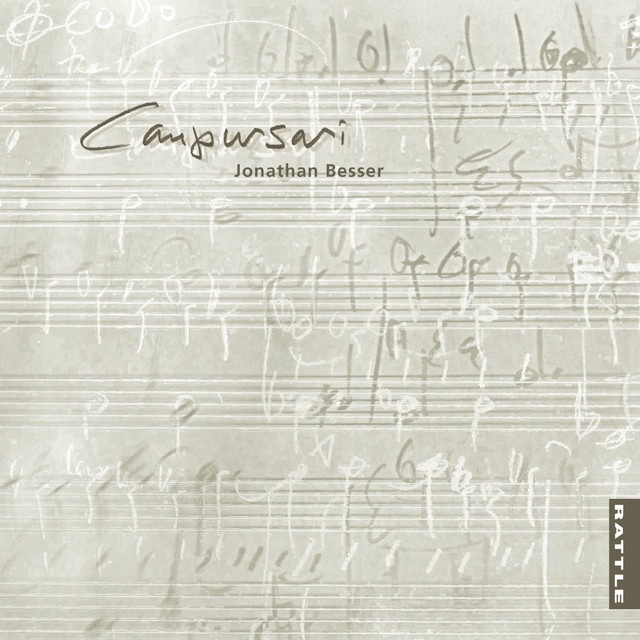 All of which – and of course none of
which – prepares you for his, yet another, “hope you like my new
direction” album Time Travels.
All of which – and of course none of
which – prepares you for his, yet another, “hope you like my new
direction” album Time Travels.
The 11-track album finds him on piano and electric piano in the studio with Daniel Christopher (bass and electric guitars) and drummer Drew Christopher.
As far as Elsewhere can tell, Besser has not worked with such a line-up previously.
Besser, who wrote all the pieces, does nod back to aspects of that long and diverse past he has created on material like the jaunty and brief Klezmatized, the jazzy rhythms and time changes on Swingtime Out and the quirky One Two Three which sounds like it escaping from a 19th century traveling show.
But on Suspension he provides the comping melodic figures which leave ample space for bass and wire-thin electric guitar; Three Monks comes in two iterations, the first as a gently groove-riding piece over thick bass and with some angular, world music/busy jazz allusions in Besser's acoustic playing (like Take Five gone enjoyably wonky in a club), the second is Three Monks Electric which is fatter, more punchy in the drums with Besser and the electric guitar interpolations diving off in different directions then reconnecting.
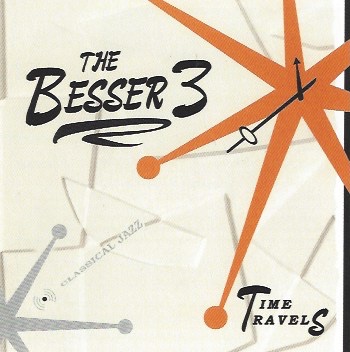 There are interesting time changes and
shifts of emphasis through out: Step Five seems like it could sail
perilously close to reggae in another lifetime but also exists
somewhere between a funky front parlour and, as he notes on the
cover, “a pleasant stroll down the garden path . . . as clouds of
electric piano chords float by”.
There are interesting time changes and
shifts of emphasis through out: Step Five seems like it could sail
perilously close to reggae in another lifetime but also exists
somewhere between a funky front parlour and, as he notes on the
cover, “a pleasant stroll down the garden path . . . as clouds of
electric piano chords float by”.
Ambient Seven's title something of a misnomer as it is too “present” but the resonances he pulls from the piano are quite commanding. But it simply winds to a fade, which pints up something about these sessions.
This is a somewhat spontaneous album from Jonathan Besser and these young Christopher brothers and as such at times seems hesitant or ideas never quite fully developed.
It certainly has passages and pieces which are delightful or challenging (it must be very hard to dislike the gentle and almost instantly familiar eight-minute Dark Loop).
But given how many fine albums there are in Jonathan Besser's lengthy catalogue – at least 20? - much of this woudn't be counted among the most important.




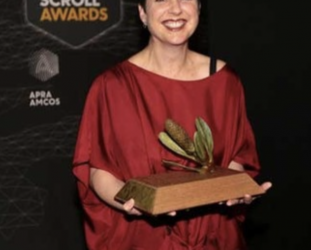
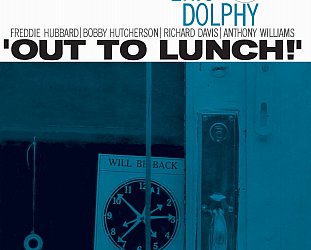

post a comment